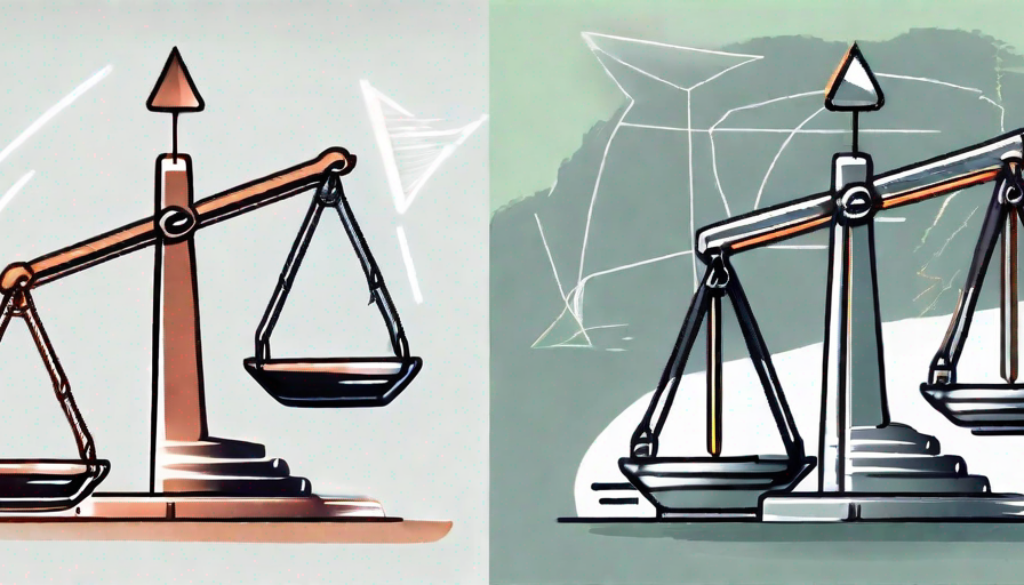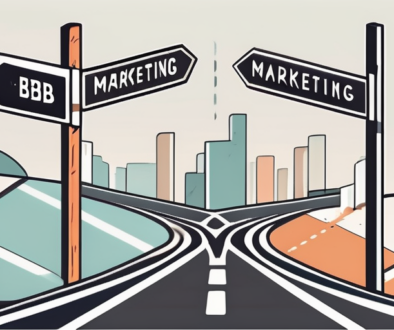ClickFunnels vs Website: Which Is the Better Option?
In today’s digital world, businesses have countless options when it comes to building an online presence. Two popular choices are ClickFunnels and traditional websites. Both offer unique features and functionalities that cater to different business needs. Understanding the basics of ClickFunnels and websites is crucial in determining which option is the better choice for your business.
Understanding the Basics of ClickFunnels and Websites
Before we dive into the comparison, let’s take a closer look at what ClickFunnels and websites actually are.
Try a 14-Day Clickfunnels TrialClickFunnels is a comprehensive marketing platform that helps businesses create and optimize sales funnels. It provides a streamlined approach to capturing leads, nurturing them, and ultimately converting them into paying customers. With ClickFunnels, you can create customized landing pages, sales pages, order forms, and more, all tailored to guide visitors towards a desired action.
But what exactly is a sales funnel? A sales funnel is a step-by-step process that potential customers go through before making a purchase. It typically consists of different stages, such as awareness, interest, decision, and action. ClickFunnels simplifies this process by providing pre-designed templates and drag-and-drop functionality, allowing businesses to create effective sales funnels without the need for extensive coding or design skills.
Now, let’s turn our attention to websites. A website, on the other hand, refers to a collection of webpages hosted on a domain. It serves as the digital representation of a business or individual and is accessible to anyone with an internet connection. Websites typically consist of different pages, including a homepage, about page, product or services page, contact page, and more. Websites provide businesses with an opportunity to showcase their brand, share information, and engage with visitors.
One of the key differences between ClickFunnels and websites is their primary focus. While ClickFunnels is specifically designed to optimize the sales process and drive conversions, websites have a broader scope and serve multiple purposes. In addition to generating sales, websites can also be used for brand building, content marketing, customer support, and more.
Furthermore, websites offer more flexibility in terms of design and customization. With a website, businesses have full control over the layout, colors, fonts, and overall aesthetics. They can also integrate various functionalities, such as e-commerce platforms, blog sections, social media widgets, and more. In contrast, ClickFunnels provides a more standardized approach with its pre-designed templates, which may limit the level of customization.
Another aspect to consider is the level of technical expertise required. ClickFunnels is designed to be user-friendly, making it accessible to individuals with little to no coding experience. On the other hand, building and maintaining a website may require more technical knowledge, especially if you want to implement advanced features or make custom modifications.
In conclusion, ClickFunnels and websites serve different purposes and cater to different needs. ClickFunnels is ideal for businesses looking to optimize their sales funnels and drive conversions, while websites offer a broader range of functionalities and customization options. Ultimately, the choice between ClickFunnels and a website depends on your specific goals, resources, and technical expertise.
Key Features of ClickFunnels and Websites
Now that we understand the fundamentals, let’s explore the key features that set ClickFunnels and websites apart.
When it comes to online marketing and sales, both ClickFunnels and websites have their own unique set of features that cater to different business needs and objectives. Let’s take a closer look at what makes each platform stand out.
Get a Free 14-Day Clickfunnels TrialUnique Features of ClickFunnels
ClickFunnels offers several unique features that make it a popular choice for businesses looking to generate leads and boost sales.
One of its standout features is the drag-and-drop editor, which allows users to easily create and customize landing pages without any coding knowledge. This intuitive interface empowers marketers and entrepreneurs to design visually appealing and conversion-focused pages in a matter of minutes.
ClickFunnels also offers A/B testing functionality, allowing you to optimize your funnels for maximum conversions. This means you can create multiple versions of your sales funnels and test different elements such as headlines, images, and calls-to-action to see which version performs better. By constantly testing and tweaking your funnels, you can improve your conversion rates and ultimately drive more sales.
Additionally, ClickFunnels provides built-in payment integrations, email marketing automation, and membership site capabilities. This means you can seamlessly integrate payment gateways like Stripe or PayPal into your funnels, automate your email marketing campaigns to nurture leads, and even create membership sites to offer exclusive content or products to your customers.
With these features, ClickFunnels provides a comprehensive solution for businesses looking to create effective sales funnels and streamline their online marketing efforts.
Unique Features of Websites
Websites, on the other hand, offer a wide range of unique features that cater to various business requirements and objectives.
One of the biggest advantages of having a website is the ability to build a fully customized online presence. Unlike ClickFunnels, which focuses primarily on sales funnels, websites provide the flexibility to create unique designs and layouts that align with your brand identity. You can choose from a wide range of templates or even hire a web designer to create a completely custom website that reflects your business’s personality and values.
Furthermore, websites offer the opportunity to incorporate various interactive elements such as image galleries, video backgrounds, and interactive maps. These features can enhance user engagement and create a more immersive browsing experience for your visitors.
In addition to design flexibility, websites also offer advanced SEO options. This means you can optimize your website’s content, meta tags, and URL structure to improve your online visibility and drive organic traffic from search engines like Google. By implementing effective SEO strategies, you can increase your website’s chances of ranking higher in search results and attracting more potential customers.
Moreover, websites can be easily integrated with various third-party tools and plugins for added functionality. Whether you need to add an e-commerce platform, a customer support chatbot, or a booking system, websites provide the flexibility to integrate these tools seamlessly. This allows you to expand your website’s capabilities and provide a better user experience for your customers.
In conclusion, while ClickFunnels excels in creating optimized sales funnels, websites offer a broader set of features that cater to different business needs. Whether you’re looking to build a brand presence, showcase your products or services, or drive organic traffic, websites provide the flexibility and customization options to help you achieve your goals.
Comparing the Functionality of ClickFunnels and Websites
Now that we’ve examined the key features, let’s dive deeper into the functionality of ClickFunnels and websites to understand how they differ and what they offer businesses.
Start Your 14-Day Clickfunnels Ultimate TrialUser Experience in ClickFunnels and Websites
ClickFunnels offers a seamless user experience by focusing on guiding visitors through a specific funnel with a clear call-to-action. The pages within a funnel are carefully designed to eliminate distractions and keep visitors engaged. This approach ensures that visitors are directed towards a specific goal, such as making a purchase or signing up for a newsletter.
On the other hand, websites offer a more comprehensive user experience, with the ability to navigate through different pages and explore various sections at their own pace. Websites provide businesses with the opportunity to showcase their brand story, products or services, and engage with visitors through various channels. With a website, businesses can create a multi-dimensional experience that allows visitors to discover more about the company, its values, and its offerings.
Furthermore, websites often include additional features such as blogs, forums, and interactive elements that encourage user engagement. These features enable businesses to foster a sense of community and build lasting relationships with their audience.
Customization Options in ClickFunnels and Websites
While ClickFunnels offers a range of customization options for landing pages and funnels, it may have limitations when it comes to overall design and branding. The platform provides pre-designed templates that can be customized to match a business’s color scheme and logo. However, the level of customization is somewhat limited, as businesses must work within the framework provided by ClickFunnels.
On the other hand, websites provide unlimited customization flexibility by allowing businesses to design and develop a unique online presence. With a website, you have complete control over the design, layout, and functionality, making it easier to align with your brand image and meet specific business requirements. Businesses can choose from a wide range of website builders or opt for a custom-built website to ensure that every aspect of their online presence reflects their brand identity.
Additionally, websites offer the opportunity to integrate third-party tools and plugins to enhance functionality. This means that businesses can incorporate features such as e-commerce platforms, customer relationship management (CRM) systems, and analytics tools seamlessly into their website, further expanding their capabilities.
Moreover, websites can be optimized for search engines, allowing businesses to improve their visibility and attract organic traffic. By implementing search engine optimization (SEO) strategies, businesses can increase their chances of appearing in relevant search results and reaching a wider audience.
In conclusion, while ClickFunnels provides a focused and streamlined user experience, websites offer a more comprehensive and customizable approach. Websites empower businesses to create a unique online presence, engage with visitors on multiple levels, and leverage a wide range of features and tools to meet their specific needs. Whether businesses choose ClickFunnels or websites depends on their goals, target audience, and the level of customization and control they require.
Pricing: ClickFunnels vs Websites
When making a decision, pricing is an important factor to consider. Let’s compare the cost of using ClickFunnels and building/maintaining a website.
Before diving into the details, it’s essential to understand the value that both ClickFunnels and websites can bring to your business. ClickFunnels offers a comprehensive sales funnel solution, while a website provides a broader online presence and flexibility. Now, let’s take a closer look at the costs associated with each option.
Cost of Using ClickFunnels
ClickFunnels offers different pricing plans depending on your business needs. The basic plan starts at $97 per month, while the Etison Suite plan, which includes additional features, costs $297 per month. These plans provide access to a range of tools and features that can help you build and optimize your sales funnels.
However, it’s important to consider the long-term investment when using ClickFunnels. The monthly fees can add up, especially for small businesses or startups that are just starting to generate revenue. Additionally, as your business grows and you require more advanced features, you may need to upgrade to a higher-priced plan, further increasing your expenses.
On the bright side, ClickFunnels does offer a 14-day free trial, allowing you to test the platform and see if it aligns with your business goals before committing to a paid plan.
Cost of Building and Maintaining a Website
Building a website can range from a minimal investment to a significant one, depending on various factors. The cost of building a website can include domain and hosting fees, website development or design costs, and ongoing maintenance expenses.
When it comes to domain and hosting fees, there are affordable options available that can fit within any budget. Many hosting providers offer competitive pricing plans, and some even provide free domain registration for the first year.
For businesses with limited resources, there are also DIY website builders that allow you to create a professional-looking website without any coding knowledge. These platforms offer a range of templates and customization options, making it easy to create a unique online presence.
However, if you require more advanced features or a custom design, you may need to hire a web developer or designer. The cost of their services can vary depending on their experience and the complexity of your website.
Once your website is up and running, ongoing maintenance is necessary to ensure it remains secure and up to date. This can include tasks such as software updates, security monitoring, and regular backups. While some businesses choose to handle these tasks themselves, others prefer to outsource them to professionals, which can incur additional costs.
In conclusion, when comparing the cost of using ClickFunnels and building/maintaining a website, it’s important to consider your business’s specific needs and budget. ClickFunnels provides a comprehensive sales funnel solution but comes with a monthly investment that can add up over time. On the other hand, building and maintaining a website offers more flexibility and affordability, especially with the availability of DIY website builders and affordable hosting options. Ultimately, the choice between ClickFunnels and a website depends on your business goals, resources, and long-term strategy.
Pros and Cons of Using ClickFunnels and Websites
Now, let’s explore the pros and cons of using ClickFunnels and websites to help you make an informed decision.
Unlock Clickfunnels: Start a 14-Day Free Trial TodayAdvantages of ClickFunnels
- Streamlined sales funnel creation and optimization.
- Robust built-in features for payment processing and automation.
- A/B testing capabilities to maximize conversions.
- Provides pre-designed templates for quick and easy setup.
Disadvantages of ClickFunnels
- Monthly subscription costs can be relatively high for small businesses.
- Limitations in overall design customization and branding.
- Dependency on ClickFunnels’ platform and updates.
Advantages of Websites
- Complete control over design, layout, and functionality.
- Flexible customization options to align with brand image.
- Unlimited pages and sections for comprehensive online presence.
- Integration with various third-party tools and plugins.
Disadvantages of Websites
- Requires technical expertise or additional investment for website development.
- Ongoing maintenance and security updates are necessary.
- Can be time-consuming to build and optimize for conversions.
In conclusion, choosing between ClickFunnels and a website depends on your specific business needs and goals. ClickFunnels offers a comprehensive solution for creating optimized sales funnels and maximizing conversions. On the other hand, websites provide unlimited customization options, complete control over the design and functionality, and a more comprehensive online presence. Consider your budget, technical expertise, required features, and long-term strategy before making a decision. Ultimately, both ClickFunnels and websites have their strengths and can be valuable assets for businesses.



